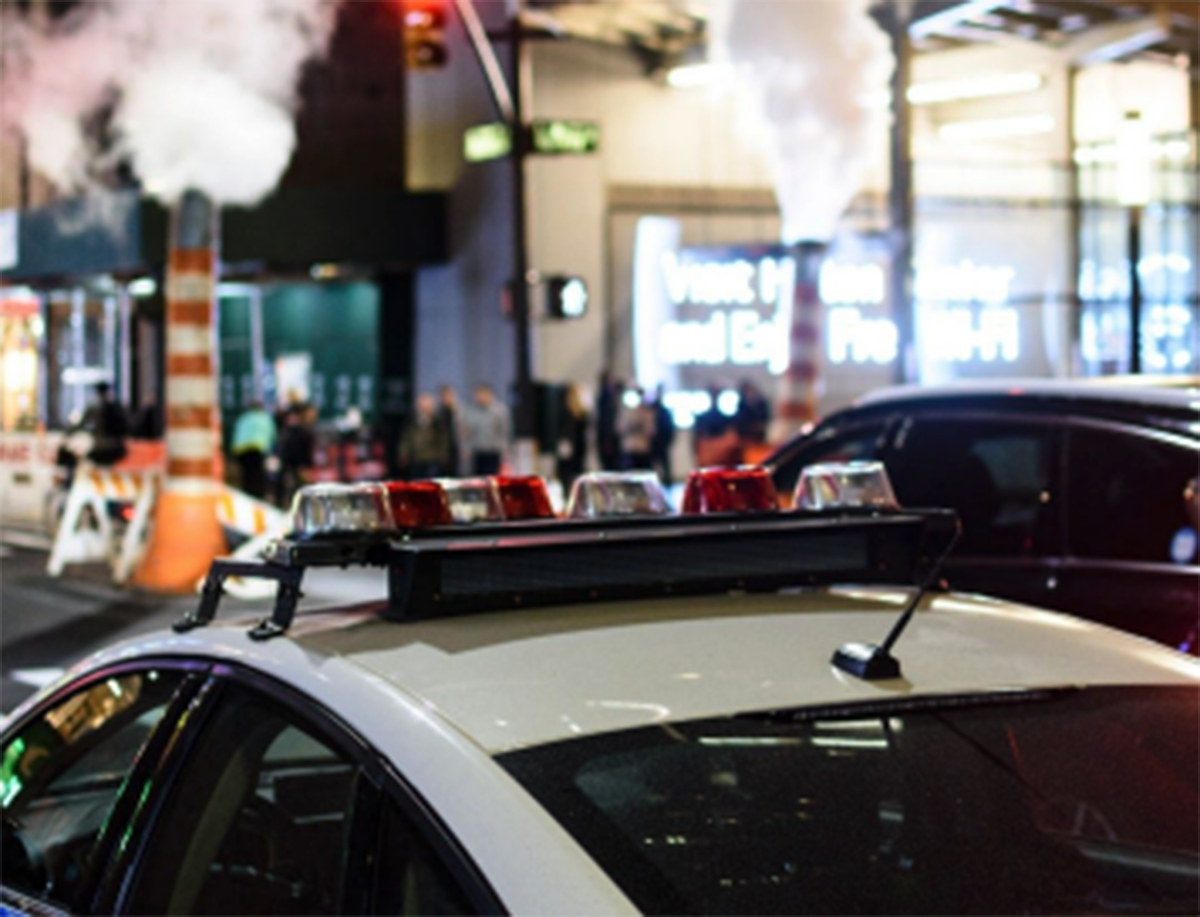Sirens wail and lights flash as a police officer races through busy streets at breakneck speeds. Despite training and the exercise of caution, accidents can and do occur. If you’re injured when a police car or other law enforcement vehicle strikes you, what happens? Do you have rights? When responding to a legitimate crisis, police officers and other emergency response personnel
have broad discretion, doing anything necessary to get to the scene as quickly as possible. Most of us agree that we want first responders on the scene right away in an actual emergency. An emergency vehicle can ignore speed limits and red lights or even travel against the flow of traffic, if necessary. The sight of a police cruiser or an ambulance weaving the wrong way through the streets is commonplace, particularly in large cities.

When an emergency vehicle is responding to a call, it does more than just ignore the rules. The vehicle’s lights and sirens temporarily supercede ordinary traffic signals, requiring traffic to divert around it. Drivers who block the path of an emergency vehicle can be cited for failing to obey traffic rules, even if they are otherwise driving safely. This is the case because they are supposed to follow the “signal” created by the presence of the police car, ambulance, or fire engine. When accidents involve an emergency vehicle, the damages can be immense. Because a first responder can run lights or drive against the flow of traffic, the chances of a T-bone or head-on collision is much higher than usual. High rates of speed, common in pursuits or rapid response, multiply the forces of the impact. Finally, many emergency vehicles like ambulances and fire engines are larger than average, making an impact with passenger vehicles even more devastating. The victims victims of an emergency-vehicle accident can suffer serious and even lifelong injuries.
After the accident
After the parties have received medical treatment, where do they turn? Can they sue the police? Should they?
Police cruisers and other emergency response vehicles carry liability insurance just like any other cars on the road. However, those insurance policies will only pay for damages if the officer, paramedic, or firefighter was actually at fault. The insurance company will not pay merely because an accident happened; it must be proven that the officer caused the accident negligently.

That’s often impossible to prove. An emergency vehicle always has the right of way when responding to a crisis. To the insurance company and to the courts, the accident is automatically the fault of the other vehicle, even if that vehicle’s driver didn’t see the lights or couldn’t get out of the way in time. Because of this, many victims of emergency-vehicle accidents are left without options. Their own insurance company may tell them it’s their fault and nothing can be done. Some car accident attorneys automatically reject these cases, thinking they are too hard to win. Despite this, victims do have rights, and they should pursue them.
Know Your Rights
If you’ve been involved in an accident involving an emergency vehicle, you should be ask an
attorney if you can use any of the following four options:
● No emergency
● Phantom vehicle
● Passenger rights
● Gross negligence
These cases can be complex and extremely challenging to win, so you should find an experienced car accident attorney who knows how to handle difficult lawsuits. If you have a valid claim of this sort, time is of the essence. Most jurisdictions have strict timelines for filing an action against government agencies, so any delay in seeking a consultation with an auto injury lawyer could jeopardize your case.
If you’ve been injured as a result of an accident involving the police, don’t wait.
Photo by Jan Gottweiss on Unsplash
Photo by camilo jimenez on Unsplash


 Since founding his personal injury firm in 1990, Louis W. Grande has established himself as one of Providence's most trusted and effective legal advocates for the injured. With more than 32 years of experience practicing law, he has successfully represented clients in a wide range of injury cases, including car accidents, premise liability, dog bites, medical malpractice, product liability, and other personal injury actions.
Since founding his personal injury firm in 1990, Louis W. Grande has established himself as one of Providence's most trusted and effective legal advocates for the injured. With more than 32 years of experience practicing law, he has successfully represented clients in a wide range of injury cases, including car accidents, premise liability, dog bites, medical malpractice, product liability, and other personal injury actions.